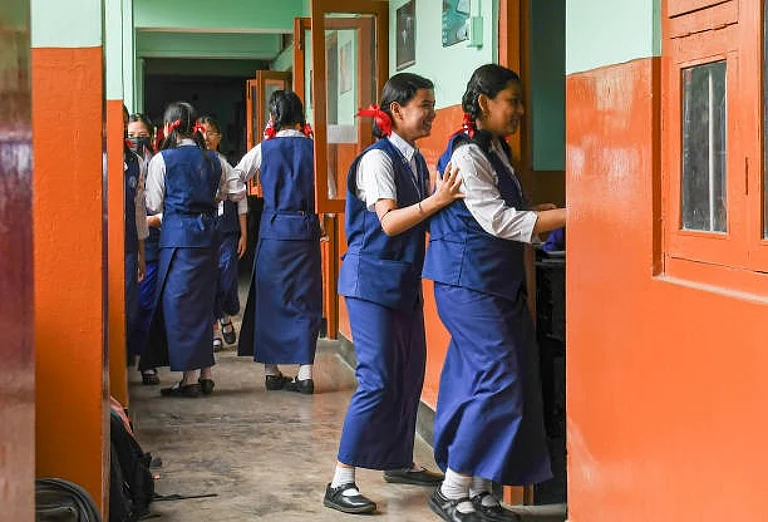On November 11, 2024 a small, tense crowd gathered on the premises of the session's court Kasargodu, anticipation etched on their faces as they waited for the legal proceedings. Television cameras stood ready and journalists clutched their microphones, sensing the gravity of the moments about to unfold.
At two in the afternoon, Moithu and his wife Aisha, accompanied by their legal counsel, completed the necessary paperwork with trembling hands. They were then presented with a small box, its weight belying its size, much like the burden they had carried for nearly two decades. The members of the action council, who had steadfastly fought for justice alongside the elderly couple, formed a protective circle around them.
The two of them opened the box to reveal a small package wrapped in pristine white cloth. As the fabric fell away, it unveiled a child's skull that bore silent testimony to a life cut tragically short. Aisha broke down, as did Moithu, despite his attempts to maintain composure. The action council members stood in respectful silence.
This was all that remained of Moithu and Aisha’s beloved Safiya, their firstborn, who was killed at the age of 13 in 2006. After eighteen years, the skull—kept as a piece of evidence throughout the prolonged legal battle for justice—had finally been returned to her parents. This marked the close of an excruciating chapter in the lives of Moithu and Aisha, who, burdened by poverty, had reluctantly sent Safiya to work as a domestic help.


.jpg?auto=format%2Ccompress&fit=max&format=webp&w=768&dpr=1.0)